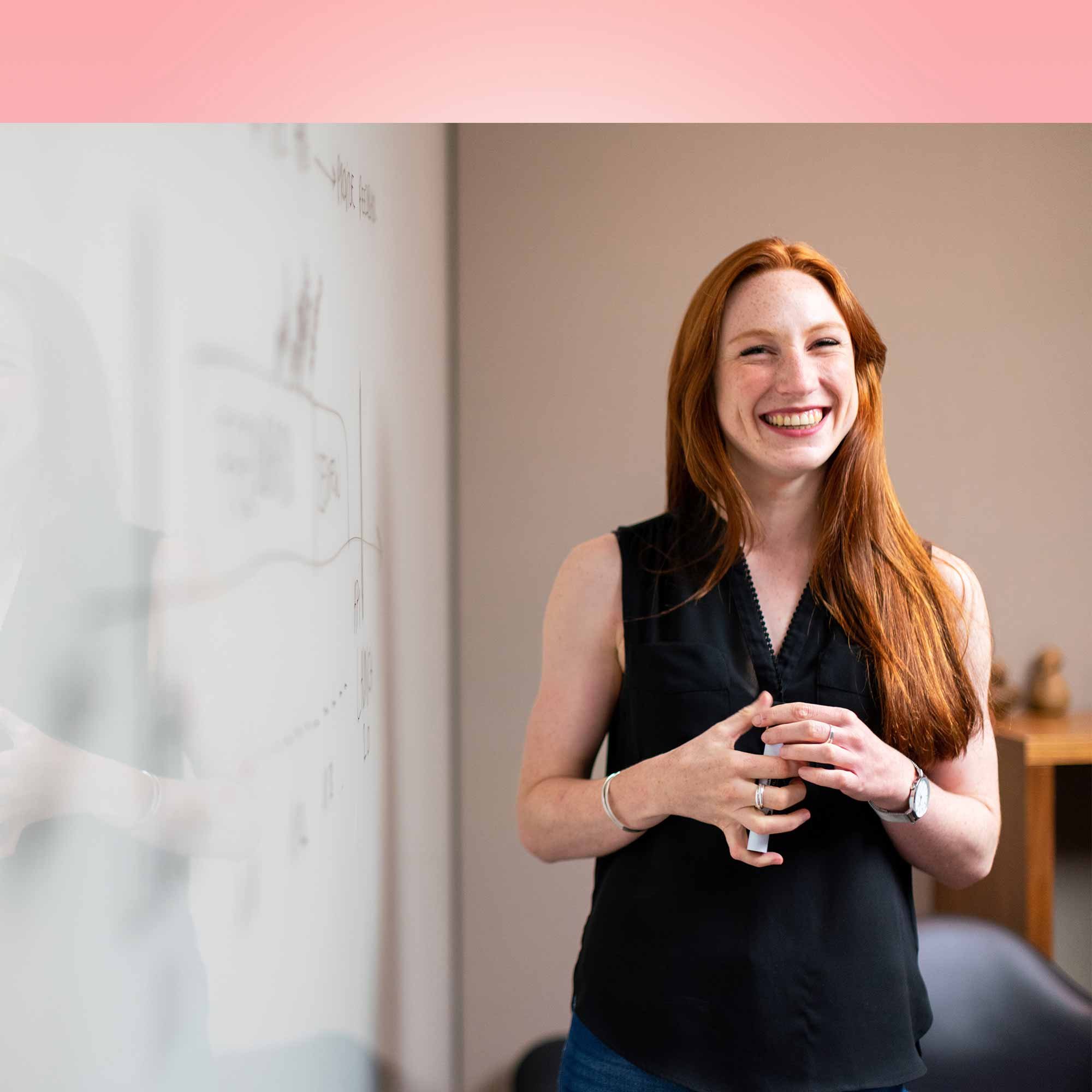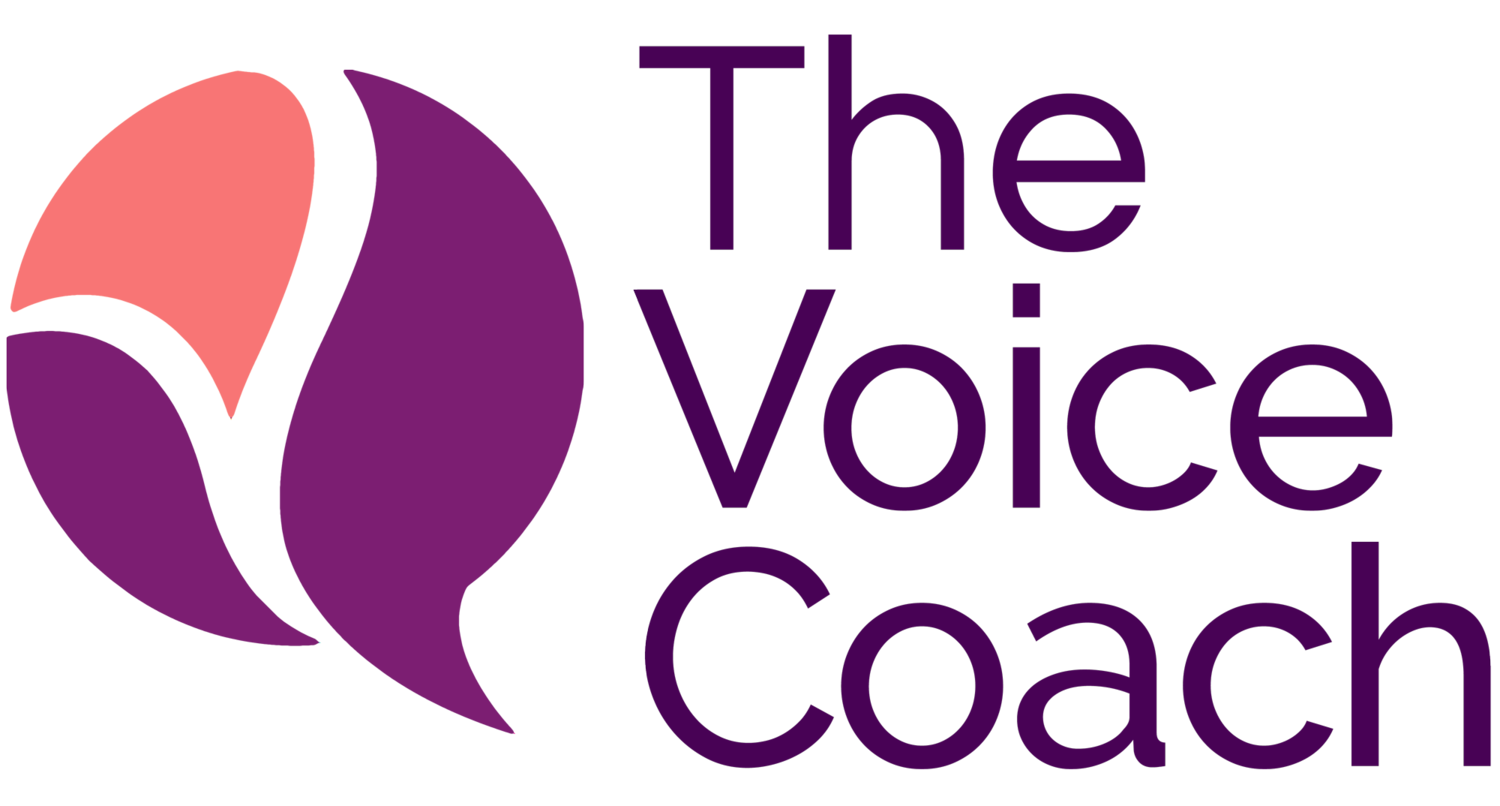
FAQ

For Business
-
The VoCo Approach, (The Voice Coach Approach) comes from the results of almost 30 years of teaching. It brings both practical and intuitive skills through a "Front Door/Back Door" approach to voice training. Front Door techniques include exercises and practice, while Back Door techniques consist of awareness, trust and courage. You'll work on strengthening your voice skills through specific vocal elements that embody 4 essential qualities of a Powerful Voice. These are the 4 C's of Confidence, Control, Connection and Clarity.
-
A Difference Maker is someone such as an Entrepreneur, Educator, Advocate, Leader or Content Creator, who has a dream, mission or cause that they want to share with their people or with the world.
-
Yes, actually, learning to speak the General American Dialect is a pro-active way of being understood more easily within the context of an English-speaking environment. Rather than "reduce" or "eliminate" your accent, we prefer to look at it as "acquiring" a new accent---the General American Dialect. Please inquire for more information on learning a General American dialect.
-
If you are experiencing problems with your voice such as pain or discomfort, vocal and physical limitations, medical problems, breathing problems, emotional problems, or any other issue that I feel is outside of my area of expertise, I will be happy to refer you to an excellent specialty practitioner.
-
At this time, I do not have payment plans.
-
Results are dependent on how much you are willing to commit to the work. Voice training takes practice, consistency and perseverance. It is my job to be your coach, guide and teacher. I will help you overcome roadblocks that could be holding you back. I will pivot, change, readjust, cheerlead and hold your hand, in any way that is best for you. Results are up to you, but what I can guarantee is that I will give you everything you need to create your own results!
-
At this time, all private lessons are held virtually with Google Meet. Classes are both in person and virtual with Google Meet.
-
Yes, you are welcome to record your own sessions, and additionally, I will periodically ask you to record yourself, or I will record you for assessment purposes. All recordings are strictly for personal use and are not to be used commercially in any way.
For Actors
-
The VoCo Approach for Performers helps you learn dialects through a "Front Door/Back Door" deconstruction of each dialect. Front Door techniques include a straightforward acquisition of the 7 Core Vocal Elements and the 4 Supporting Vocal Elements of a dialect, such as the resonance, sound changes, or culture, as well as drills and exercises for practicing fluency. Back Door techniques bring intuitive terminology for learning the Vocal Elements, as well as learning trust and courage in taking on the dialect.
-
A dialect is a variation of a language evident in vocabulary, phraseology, and pronunciation. So for example, dialects of English can include Australian English, British English, or American English, but can be even more specific, such as the English of Sydney, versus New York, versus Liverpool for example. An accent is the carry-over of pronunciations, grammatical structures and translations from one language to English. For example, a French-speaking person who speaks in American English usually has an accent because the sounds of French are transferred to the sounds of American English. Also, grammatical structures can show up in the form of dropping "the," before a noun, as in Russian ("Show me book." instead of "Show me the book."), for example.
-
That depends on how much time you are willing to put into your practice! If starting from scratch with a dialect, you can expect to learn the basics and begin to feel familiar with speaking in dialect after taking Dialect Salon classes. It will take much longer to feel comfortable enough to perform a role or casually chat in the dialect. If you practice diligently and relentlessly, you will have a much faster and more successful outcome. The more dialects or accents you learn, though, you will develop muscle memory and dialect acquisition skills that will build, and help you learn the next dialect or accent more easily.
-
Absolutely. The VoCo Approach for Performers will help you build both practical and intuitive skills through a "Front Door/Back Door" approach to dialect training. Front Door techniques--the straight-forward skill-building tools include examining the vocal elements of a dialect and deconstructing the characteristic sounds that makes that dialect identifiable. Drilling, practicing, training the ear and dialect analysis are the important tools when you first start to learn the Dialect. The Back Door approach consists of intuitive language and imagery that help you figure out and feel the parts of the dialect so that you can connect with the learning and experience deeper retention of the information. In addition, interaction with others, entertaining activities and games and sensory awareness brings you to a deeper more meaningful level with your dialect training.
-
Yes! You may also want to work on learning the General American Dialect as a reference. The Vocal Elements of each dialect or accent are in reference to the Vocal Elements of a General American Dialect.
-
The performer’s rate for private lessons is $80 for 1 hour. You are welcome to add friends to your sessions for a semi-private lesson with 2 or more people.
-
No, not at all! It's just a lot of fun to learn a dialect. It's a great way to explore your voice and let loose as a character.
-
In post-pandemic times, I have found that virtual lessons are just as effective as in-person lessons. While not perfect, virtual lessons provide the added benefits of convenience, privacy and saving time.
Foreign Language Pronunciation
-
French, German, Italian and Spanish
